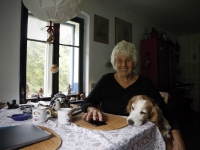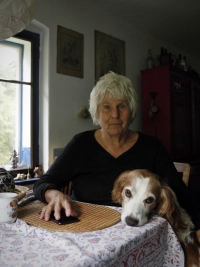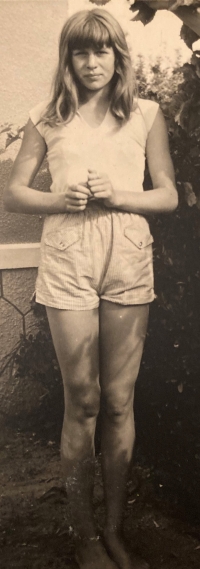The occupation was responsible for the divorce. Mufid trusted the Russians
Download image
Pavla Jazairiová was born on March 5, 1945 in Munster, France. Her mother, Ema Kochová, was placed in Germany for forced labor, and there she met Pavla’s father, a Dutch art dealer. She grew up traveling between France and Czechoslovakia. In 1965, she joined the Czechoslovak Radio editorial for the Francophone Africa broadcast. In the same year she met her future husband, the Iraqi journalist Mufid Jazairi, and they had two sons, Nisan and Martin. She began traveling to Africa and writing books about her travels. Just after the Warsaw Pact invasion of Czechoslovakia in 1968, she and her husband got divorced. In 1971 she was also fired from the radio due to ideological reasons. She joined the IOJ - the International Organisation of Journalists - and worked as a translator. With her second husband, Jan Zaorálek, who was also fired from the Czechoslovak Radio, she moved to Poustka near Frýdlant in Bohemia. She did not return to radio broadcasting until the summer of 1990. She started to work as editor - commentator on events in Africa and the Middle East. She worked on a radio programme called Foreign Reporters’ Notebook. She retired in 2001 to focus more on traveling and writing. She was enshrined in the Radio Hall of Fame in 2017. At the time of the interview in 2022, she lived in Poustka near Frýdlant, Bohemia, and had twenty-two published books under her belt.








